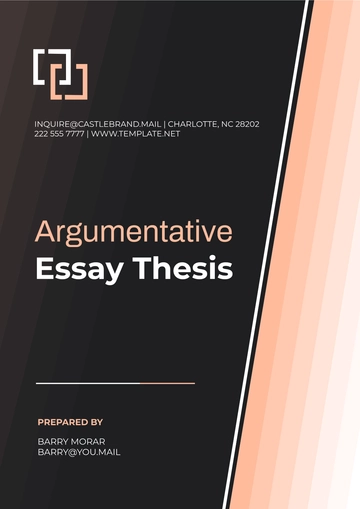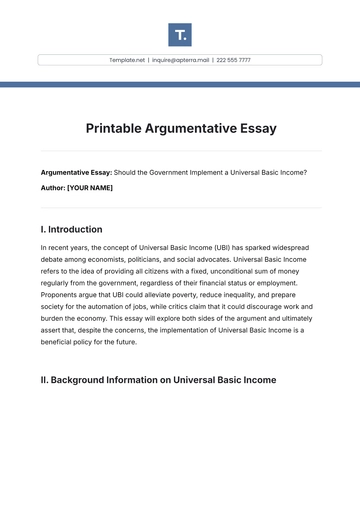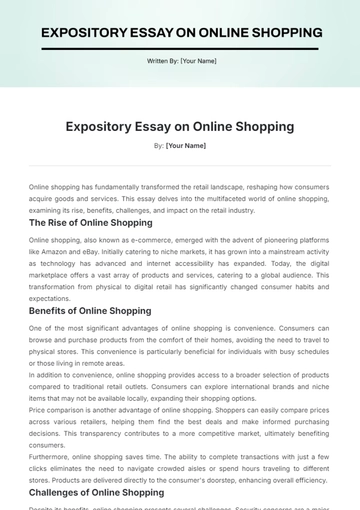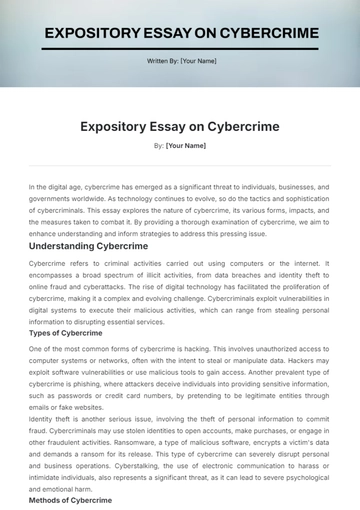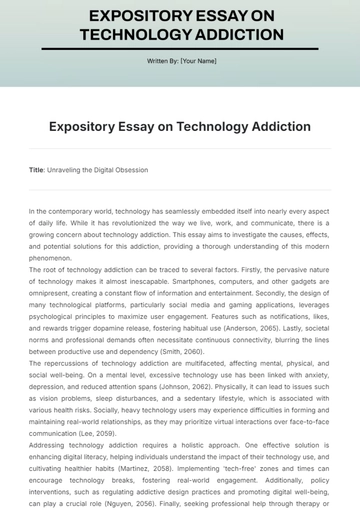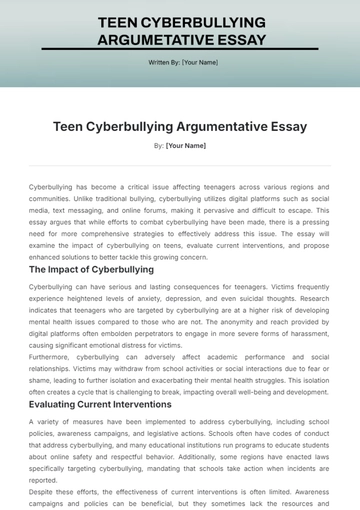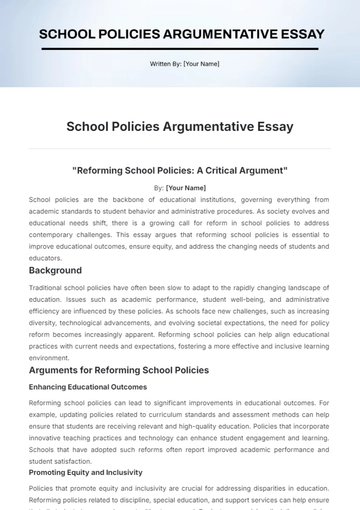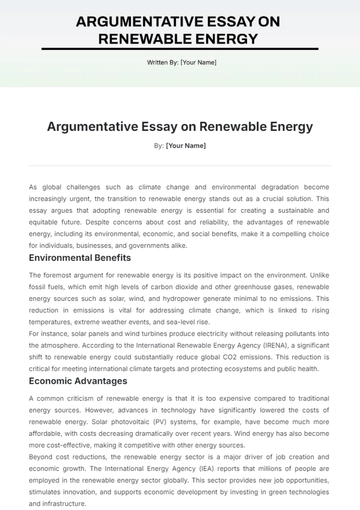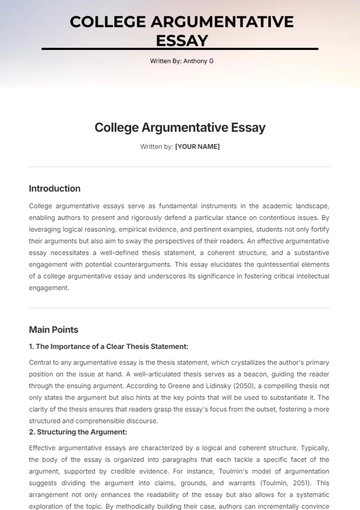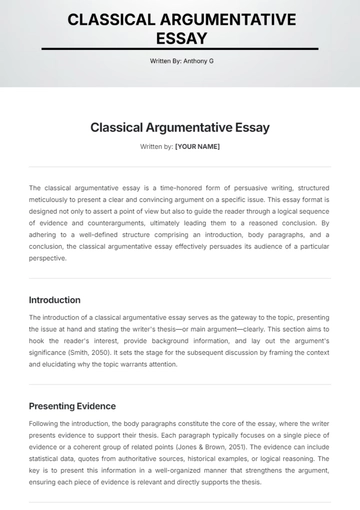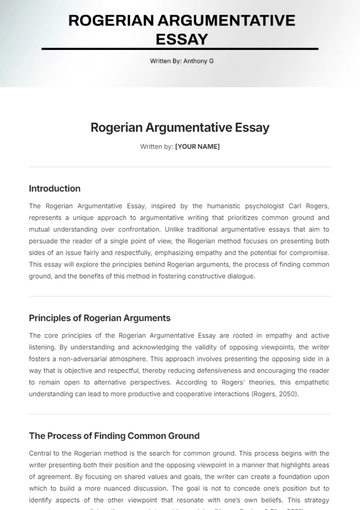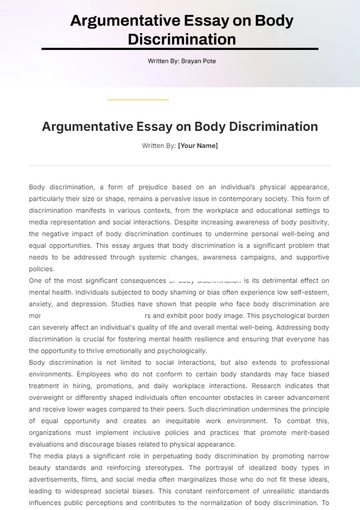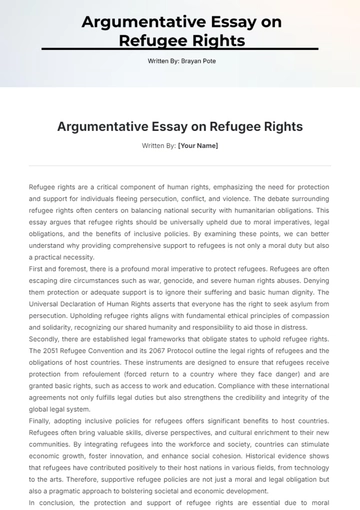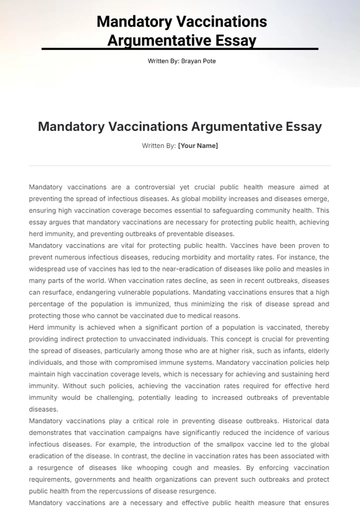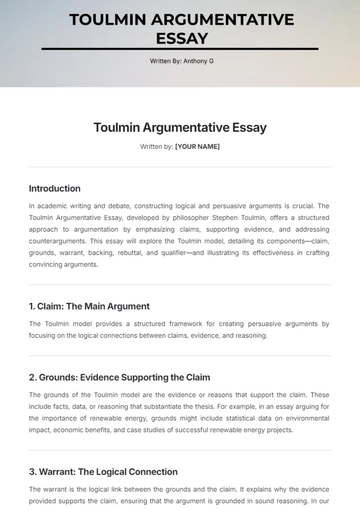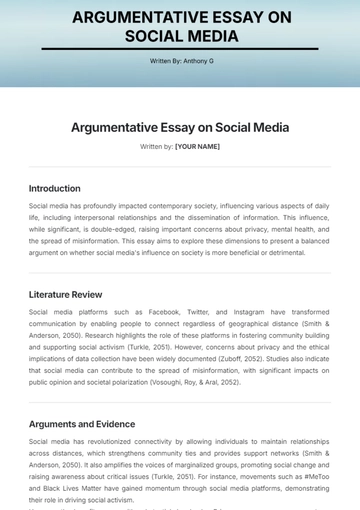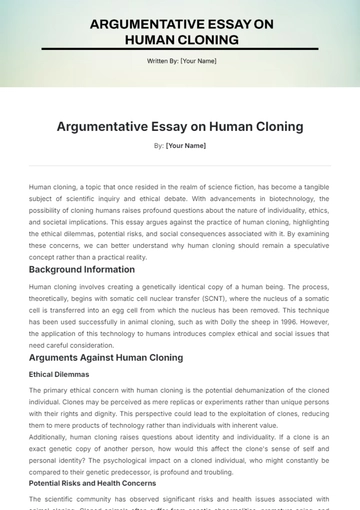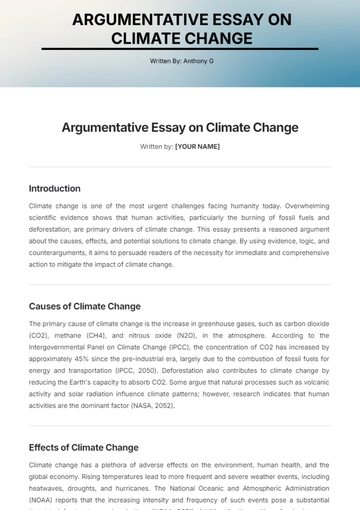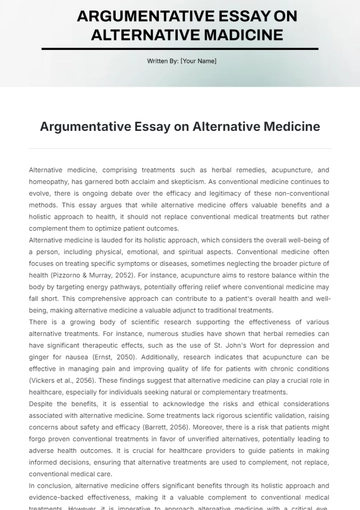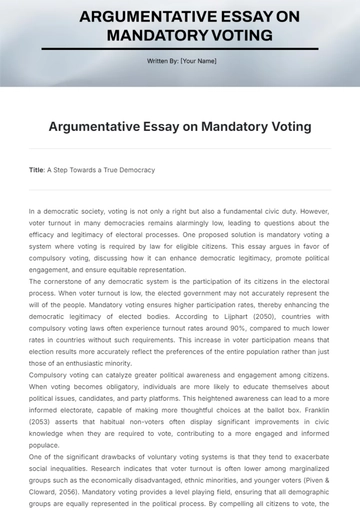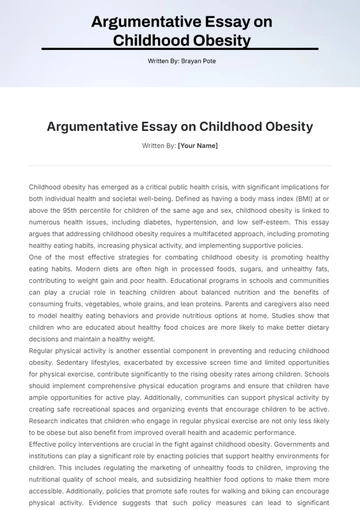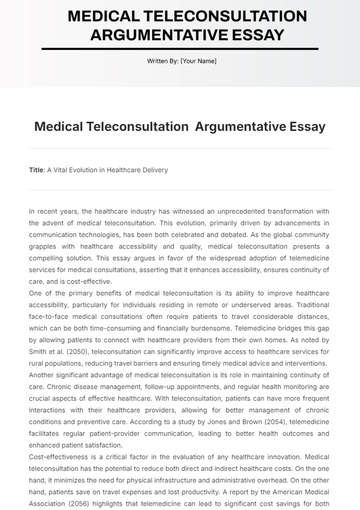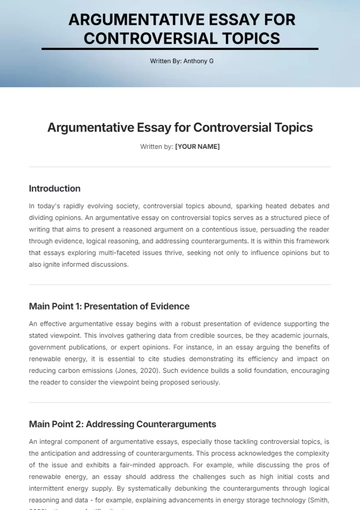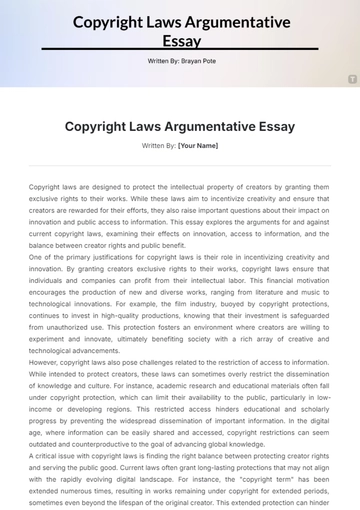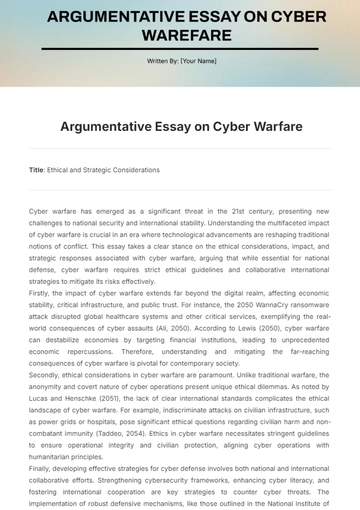Free Argumentative Essay on Renewable Energy
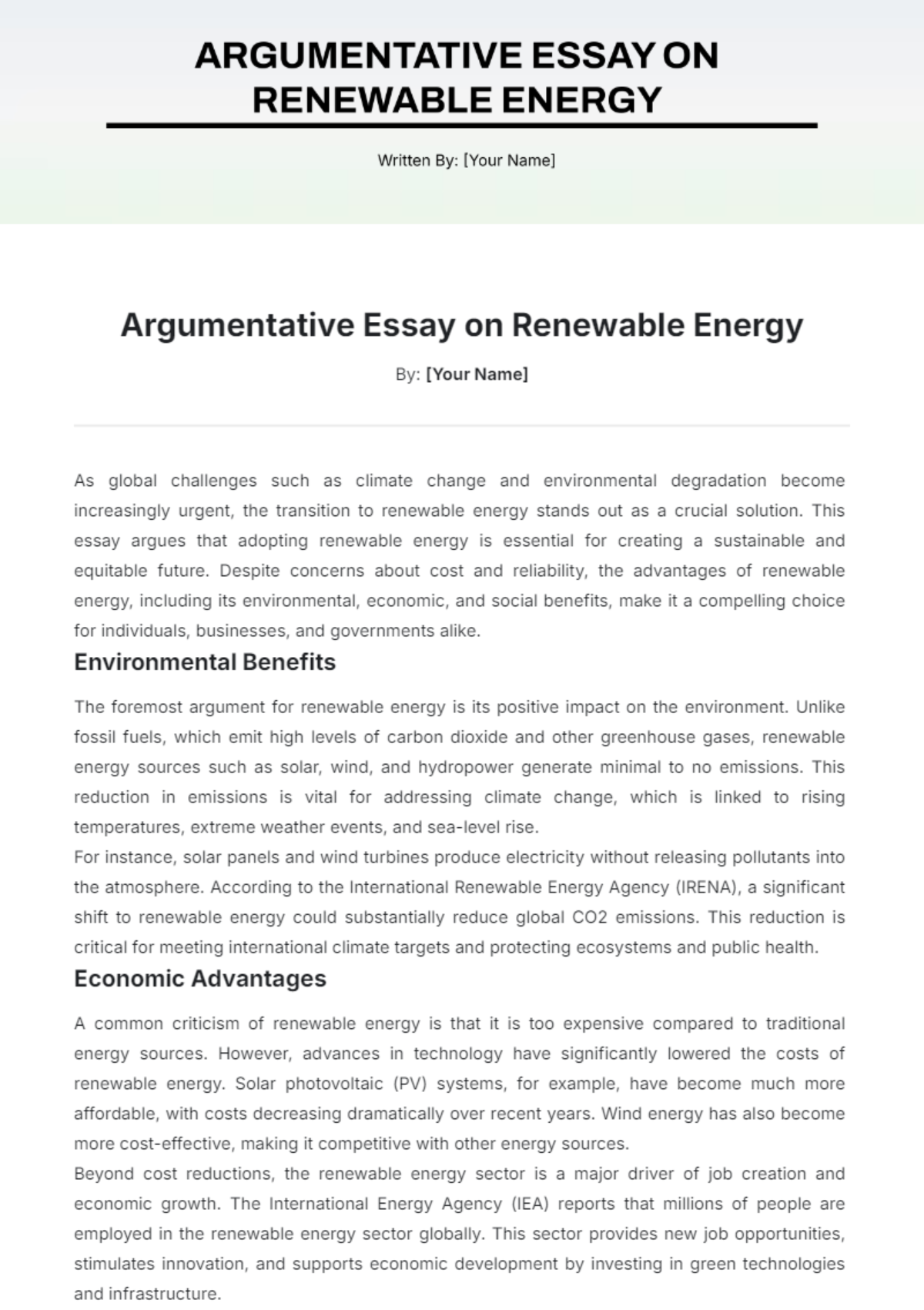
By: [Your Name]
As global challenges such as climate change and environmental degradation become increasingly urgent, the transition to renewable energy stands out as a crucial solution. This essay argues that adopting renewable energy is essential for creating a sustainable and equitable future. Despite concerns about cost and reliability, the advantages of renewable energy, including its environmental, economic, and social benefits, make it a compelling choice for individuals, businesses, and governments alike.
Environmental Benefits
The foremost argument for renewable energy is its positive impact on the environment. Unlike fossil fuels, which emit high levels of carbon dioxide and other greenhouse gases, renewable energy sources such as solar, wind, and hydropower generate minimal to no emissions. This reduction in emissions is vital for addressing climate change, which is linked to rising temperatures, extreme weather events, and sea-level rise.
For instance, solar panels and wind turbines produce electricity without releasing pollutants into the atmosphere. According to the International Renewable Energy Agency (IRENA), a significant shift to renewable energy could substantially reduce global CO2 emissions. This reduction is critical for meeting international climate targets and protecting ecosystems and public health.
Economic Advantages
A common criticism of renewable energy is that it is too expensive compared to traditional energy sources. However, advances in technology have significantly lowered the costs of renewable energy. Solar photovoltaic (PV) systems, for example, have become much more affordable, with costs decreasing dramatically over recent years. Wind energy has also become more cost-effective, making it competitive with other energy sources.
Beyond cost reductions, the renewable energy sector is a major driver of job creation and economic growth. The International Energy Agency (IEA) reports that millions of people are employed in the renewable energy sector globally. This sector provides new job opportunities, stimulates innovation, and supports economic development by investing in green technologies and infrastructure.
Addressing Reliability Concerns
One challenge often cited is the intermittency of renewable energy sources; solar and wind energy are not always available. However, advancements in energy storage and grid management are addressing these issues. Modern battery technologies and smart grid systems enhance the ability to store and distribute energy more efficiently, ensuring a reliable supply even when renewable sources are not producing electricity.
Combining different types of renewable energy and using hybrid systems can further improve reliability. For example, integrating solar power with wind energy and storage solutions can provide a more consistent energy supply. This approach reduces dependence on fossil fuels and supports a more stable and resilient energy grid.
Social and Environmental Justice
Renewable energy also plays a crucial role in promoting social and environmental justice. Communities near fossil fuel extraction sites often face significant health risks from pollution and environmental damage. By transitioning to renewable energy, these risks can be reduced, leading to cleaner air and healthier living conditions.
Additionally, renewable energy projects can benefit underserved communities by creating jobs and fostering local economic development. Community solar programs, for example, allow individuals and businesses to participate in solar energy projects even if they do not have suitable rooftops for solar panels. This approach makes clean energy more accessible and equitable.
Conclusion
In summary, the transition to renewable energy is a vital step towards a sustainable and just future. The environmental benefits, coupled with decreasing costs and technological advancements, underscore the feasibility and importance of adopting renewable energy. Addressing concerns about reliability and cost through innovation and strategic planning further strengthens the case for renewable energy. Embracing renewable energy is not just a choice but a necessary action for creating a healthier planet and fostering economic and social equity.
- 100% Customizable, free editor
- Access 1 Million+ Templates, photo’s & graphics
- Download or share as a template
- Click and replace photos, graphics, text, backgrounds
- Resize, crop, AI write & more
- Access advanced editor
The Argumentative Essay on Renewable Energy Template from Template.net offers an editable and customizable structure, making it easy to create a well-reasoned and persuasive essay on renewable energy topics. Ideal for students and professionals, this template provides a clear framework to present strong arguments while allowing you to tailor content to your specific needs and style. Save time and produce a polished, impactful essay with this user-friendly format.
